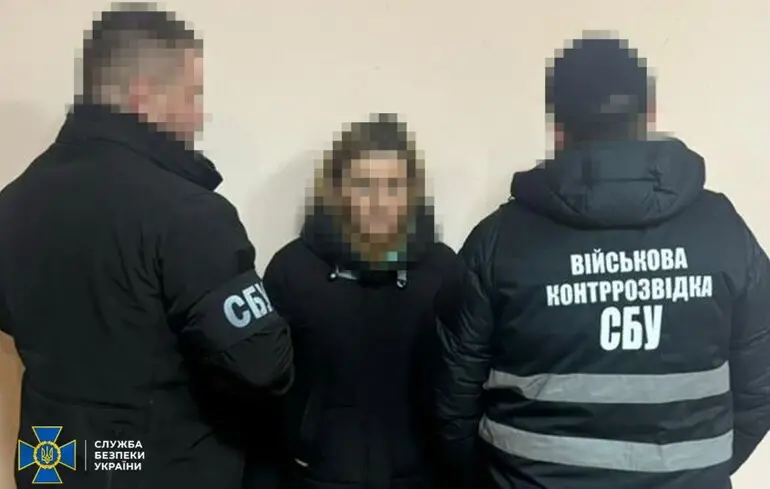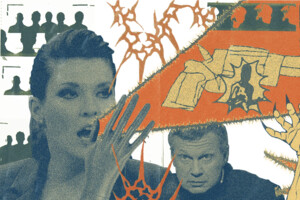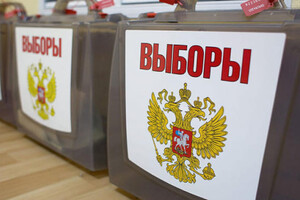How and who to punish for collaborationism? Questions that need answers

Punishment for collaborationism remains a socially sensitive issue. In the third year of a full-scale war in Ukrainian society, there is an obvious demand for justice for those who deliberately collaborated with the enemy. On the other hand, the fact of being in the temporarily occupied territories is not a crime, although this is precisely the thesis that Russian propaganda speculates on. They say, “in the event of the return of Ukraine, nothing good awaits the people living in these territories.”
Until February 24, 2022, we actually had one court case on collaborationism, which ended in a verdict. Starting from March 2022, the situation has changed radically. At this time, the Verkhovna Rada adopted the Law of Ukraine “On Amendments to Certain Legislative Acts of Ukraine on Establishing Criminal Liability for Collaboration Activities”. Mainly, it concerns the addition of Article 111-1 of the Criminal Code of Ukraine.
For the parliament, this was a forced step, as extreme circumstances required a quick response. In less than three years of large-scale invasion, almost 9,000 criminal proceedings have been opened under the aforementioned article. It is worth noting that most of them directly concern those who were in the Temporarily Occupied Territories of Ukraine, which were later liberated. These are primarily Kharkiv and Kherson regions, but also Kyiv, Chernihiv, Sumy and Zaporizhia regions.
During the summer counteroffensive of the Armed Forces of Ukraine, starting from August and ending in November 2022, when certain areas were liberated, certain procedures took place there, which can be called “filtration”. The Security Service of Ukraine and law enforcement agencies checked residents of the deoccupied territories for cooperation with the enemy in order to establish whether a person fell under the definition of a “collaborator” or not. In addition, it is worth noting that reports from fellow villagers and neighbors who lived in these territories or left, but had information about what was happening there, were also taken into account.
Article 111-1 of the Criminal Code of Ukraine was used as a punitive instrument for interaction, firstly, with the armed forces of the Russian Federation, and secondly, with administrative pseudo-formations in the occupied territories.
To date, information is being collected regarding events in the territories that continue to be under occupation. Thus, an investigation is currently underway to identify those who are conducting ideological work, organizing illegal “elections,” and who are resorting to pressure, threatening residents with persecution, etc. Regarding such individuals, the attitude of state bodies should be determined in the event that these territories are returned to the governance of Ukraine and the appropriate possible prosecution if they are found to have committed actions that are considered criminal.
A large number of criminal cases, together with sentences and actual terms of imprisonment, today cause a significant burden on the law enforcement, judicial, and criminal enforcement systems. Resolving all these issues excessively burdens them and does not always bring positive results.
For example, residents of deoccupied communities know who exactly reported on Ukrainians who belonged to the resistance forces against the enemy. In addition, residents of these communities also know information on whose instructions people were taken “to the basement”, tortured, and sometimes killed. But for these potential criminals, proper legal evidence is not always collected, a lot of work needs to be done within the framework of criminal investigations, and such a person himself is considered innocent until he has a court verdict. If you multiply this by 9 thousand proceedings, the question of the resources necessary for high-quality trials will inevitably arise.
Instead, it is worth noting that the biggest problem exists at the level of the legislation itself. What categories of subjects fall under the definition of “collaborator”, and what actions fall under “collaborationism”? The definitions in Article 111-1 are quite broad and vague. In addition, there is also a correlation with other articles of the Criminal Code of Ukraine, such as the fact that one and the same action of a person can be qualified either as “collaborative activity” or as “justification, recognition as lawful, denial of the armed aggression of the Russian Federation against Ukraine, glorification of its participants” (Article 436-2). Therefore, similar actions of a person can be classified under different articles with different sanctions.
The key point is at what level does criminal liability begin and what should it be? For example, we are talking about the educational sphere. Are mathematics or physical education teachers who find themselves in a territory occupied by the enemy subject to prosecution? Are only head teachers, school principals, and representatives of educational management bodies subject to prosecution? Similar questions arise regarding medicine, the social security system, and emergency services that deal with the elimination of the consequences of natural disasters or shelling. We are talking about a wide range of workers who ensure the normal functioning of cities and towns.
Today, these issues are resolved rather negatively, that is, most of those who remained in the Temporarily Occupied Territories of Ukraine are suspected of collaborationism, since they were involved in certain processes and actions during the occupation.
At the same time, it is known that the Russian Federation is severely violating the “rules of the occupation regime” defined in the IV Geneva Convention. On the other hand, the aggressor state itself, starting in 2014, rejects the claim that it has carried out the occupation. The Russian Federation is implementing a repressive policy in order, relatively speaking, to “melt” the captured territories and turn them into “part of the Russian Federation” in one or another “status”.
It is worth noting that coercion to cooperate is carried out not only directly through coercive measures with forced passporting, mandatory checks, and without any alternative other than submission to the orders of the occupation authorities, but also through the application of mass ideological and informational influence. The occupiers are trying to Russify the population of the Temporarily Occupied Territories of Ukraine, that is, to introduce a set of actions and conditions aimed at strengthening Russian national-political superiority in Ukraine and among Ukrainians. Thus, it means that they want to change the identity of these people, in particular by imposing citizenship of the Russian Federation. The so-called “patriotic education” begins in kindergarten. Indoctrination is taking place, which involves “fighting everything Ukrainian” through the spread of Russian propaganda.
Unfortunately, this works if people live in such an environment for a long time. Let's remember that Crimea, parts of Donetsk and Luhansk regions have been in a poisoned information space for over ten years. It forms a corresponding vision, a point of view.
Let's be honest, there are those who consciously made a choice in favor of the Russian Federation. These people did so because of ideological beliefs and/or material interests. For example, since 2014, the Russian Federation has been trying to attract and "lure" representatives of security forces and law enforcement agencies with all sorts of benefits and salaries, which they promised to make twice or three times higher than Ukrainian ones. Collaborators went to earn big, in their opinion, money for their usual work in their own locality where they lived.
It should be emphasized separately that living in the Temporarily Occupied Territories of Ukraine after their return to Ukraine will not be grounds for any criminal prosecution or restriction of rights, as well as obtaining any documents in these territories (including passports). Also, paying taxes to the budgets of the administrations of the occupied territories should not be grounds for criminal prosecution, since this is a forced measure for those who live and work in the Temporarily Occupied Territories of Ukraine. It is simply impossible to survive in the occupation without having a workplace. On the other hand, the taxes of each such worker go to the war with Ukraine, so this raises certain problematic issues. It is obvious that not everyone who was in the occupied territories remained there of their own free will. For this, everyone had the appropriate motives, material resources, family ties, other conditions and circumstances. The Ukrainian state was unable to provide everyone with the opportunity to leave the Temporarily Occupied Territories of Ukraine with the subsequent arrangement of housing and jobs in the government-controlled territory.
Staying in the occupied territories is not a criminal offense. No matter how difficult it may be, in each specific case we must apply an individual approach and take into account the conditions that are sufficient (or not) to consider the relevant actions of a person in the occupied territory as collaborative activities, as defined today in the Criminal Code of Ukraine.
Please select it with the mouse and press Ctrl+Enter or Submit a bug














 Login with Google
Login with Google